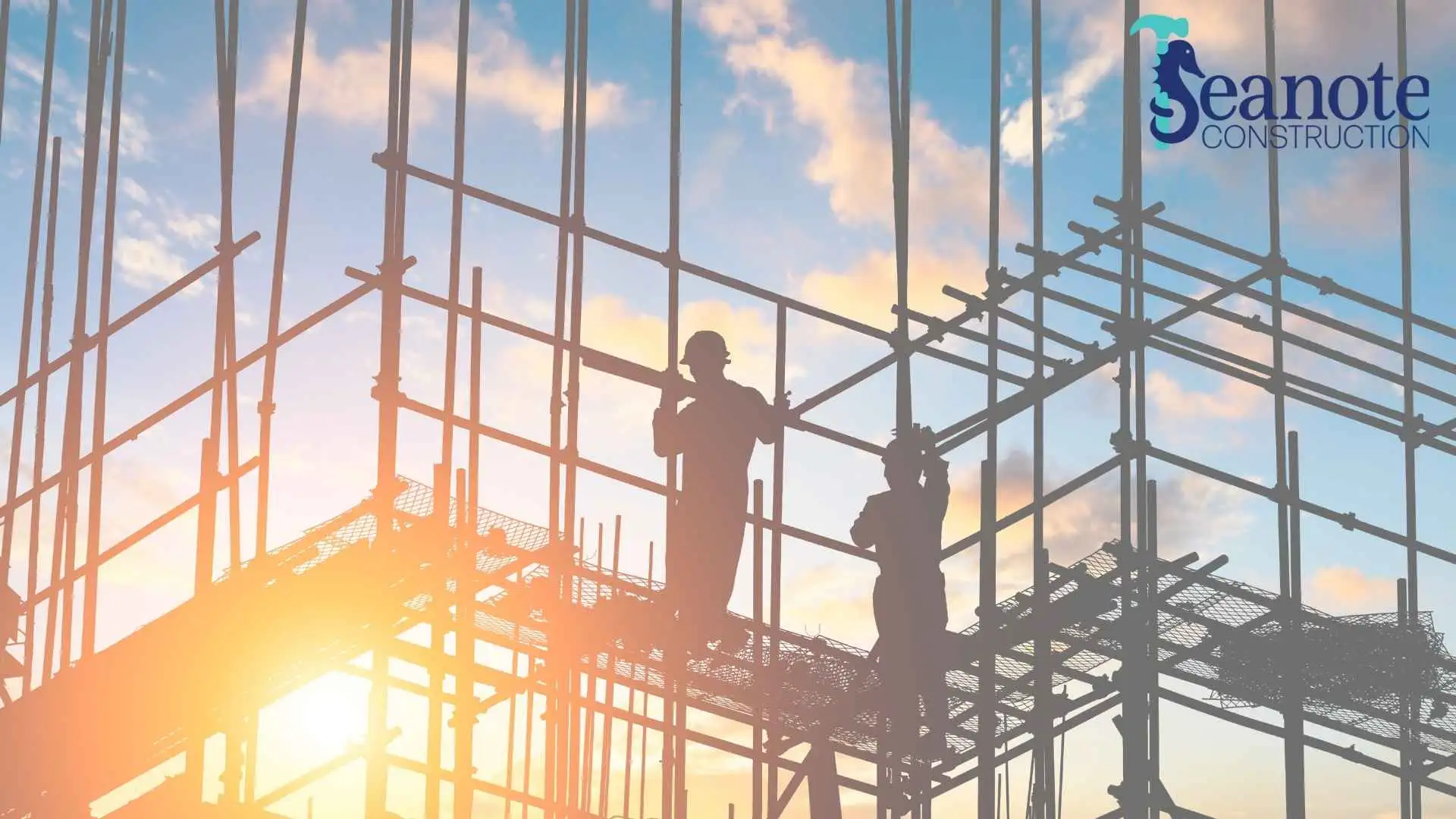Florida’s commercial development environment is booming. But this progress comes with a hard truth: Florida recorded 92 construction fatalities in 2023, a 20% increase in just two years. Falls remain the leading cause, especially on high-rise sites.
Businesses preparing to invest in a commercial project recognize that they need a construction partner capable of delivering an intricate build on time, on budget, and without compromising safety. One serious incident can shut down a project, lead to six-figure fines, destroy schedules, and damage reputations.
At Seanote Construction, safety is a business priority that sets us apart. Our proactive approach to risk management gives clients a clear advantage in Florida’s fast moving construction environment.
Understanding the Real Cost of Risk and Why Safety Failures Derail Florida Construction Projects
Many construction firms talk about cost overruns, delays, and workforce shortages as isolated problems. However, these issues often stem from inadequate on-site risk management.
A single fall incident can trigger a costly chain reaction:
- Immediate Shutdown: Work stops for investigations, bringing progress to a standstill.
- OSHA Scrutiny: Inspectors uncover additional violations, compounding the problem.
- Financial Impact: Fines increase, insurance premiums skyrocket, and legal exposure grows.
- Reputation Damage: Skilled workers and subcontractors hesitate to engage with unsafe contractors.
That’s why at Seanote Construction we treat safety as the foundation of project performance, not a separate obligation.
Florida’s Regulatory Requirements and the OSHA Standards That Apply
OSHA’s evolving standards demand precision and proactive management. With serious violations reaching $16,550 and willful or repeat violations exceeding $165,000, non-compliance is unacceptable.
It important for your construction partner to stay ahead of key regulatory areas, including:
1. Properly Fitted Personal Protective Equipment (PPE) for Diverse Body Types (2025 Update)
Workers must have PPE that fits correctly, not “close enough.” Harnesses, gloves, and protective gear must be tailored for safety and functionality.
2. Mandatory Heat Illness Prevention Plans
Florida’s climate makes heat illness prevention necessary. The following must be present:
- Acclimatization protocols
- Documented rest, shade, and hydration schedules
- Worker training to identify early signs of heat stress
3. Enhanced Lead and Hazard Communication Requirements
Projects involving older structures require:
- Advanced air monitoring
- Proper containment of hazardous materials
- Clear, ongoing communication regarding chemical exposure risks
Our Strategy for Controlling Florida’s “Fatal Four” on Construction Sites
The “Fatal Four” refers to the four leading causes of construction-related fatalities. Our team employs proven, Florida-specific strategies to control these risks and protect every phase of your project.
1. Falls
- Certified anchor points and routinely inspected fall-arrest systems
- Controlled access zones for leading-edge operations
- Weather-response protocols for sudden lightning or storms
2. Struck-By Incidents
- 100% tool tethering at height
- Perimeter debris netting and compliant toeboards
- Crane swing-radius enforcement and clearly marked exclusion zones
3. Electrocution
- Properly installed temporary power systems
- Strict lockout/tagout (LOTO) procedures
- Accurate underground utility locating before excavation
4. Caught-In/Between Hazards
- Protected trenches deeper than five feet
- Spotter-assisted movement of heavy machinery
- Organized, stable material staging plans
Using Technology to Move Beyond Compliance and Strengthen Risk Control
Forward-thinking construction partners use technology to anticipate and prevent hazards. This includes:
IoT Sensors
Equipment and wearables that alert teams to unsafe operation, fall events, proximity risks, or machinery maintenance needs.
AI & Predictive Analytics
Platforms that analyze field data to identify high-risk patterns before they result in incidents.
Virtual Reality Training
Immersive simulations that allow crews to experience high-risk scenarios, like crane operations, confined spaces, elevated work, without danger.
Start a Safer and More Successful Build
Commercial projects in Florida require a construction company that sees risk management as necessary to performance, not an afterthought.
At Seanote Construction, we embed safety into every phase of the project, stay ahead of regulatory requirements, and apply proven strategies to control high-rise risks before they impact your timeline or budget.
If you need a construction partner who treats safety as a competitive advantage, contact us today so we can discuss how to support your next commercial project.

